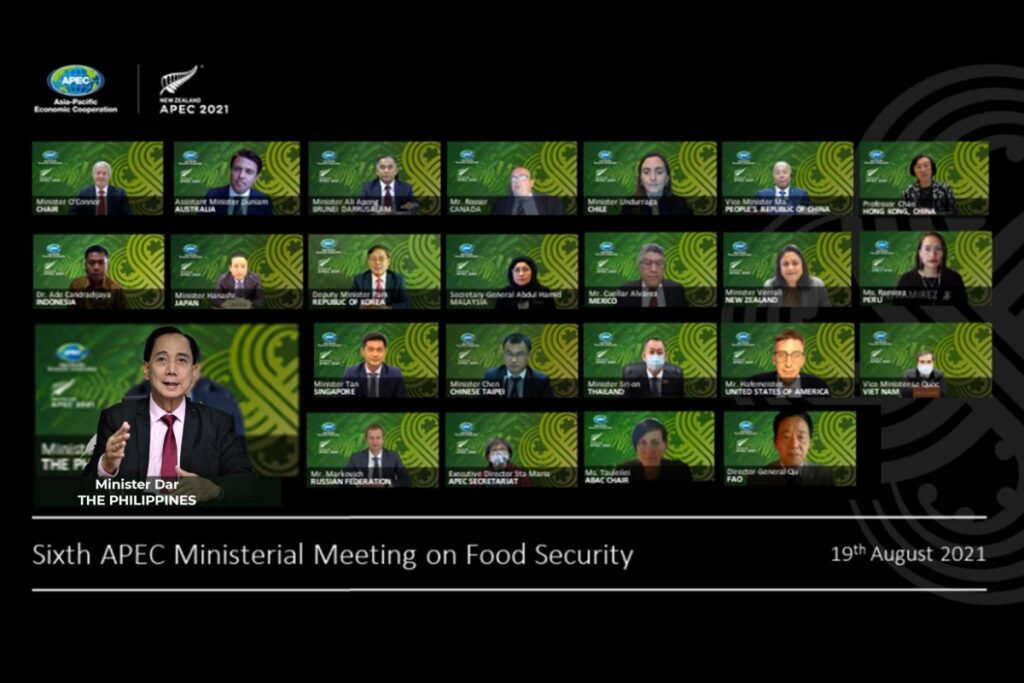The Philippines has committed to advancing digitalization and innovation, productivity, inclusivity, and sustainability to achieve food security in responding to the immediate global health crisis and economic shock brought about by the COVID-19 pandemic.
Agriculture Secretary William Dar signed the commitment — on behalf of the Philippine government and President Rodrigo Roa Duterte — during the virtual 2021 APEC Food Security Ministerial Meeting, on August 19, 2021, along with 20 other members of the Asia Pacific Economic Cooperation (APEC).
During his privilege speech, Secretary Dar said the DA is keeping a close watch on trends and technological developments in the global food production ecosystem, as it strives to bring agriculture advocacy and education to the next generation.
He particularly pointed to the country’s growing base of youthful agripreneurs, who are using social media as their most cost-effective marketing tool. “In that, swift catching up has been done the past couple of years. The young population of the Philippines is not about to miss out on lending their savvy for technology to one of the most vaunted sectors inducting economic recovery,” he said.
“This young, skilled cohort is being empowered by access to credit, further education and training in agri-fishery, and ready markets through our banner marketing programs. This new generation of agripreneurs are the vectors of digital culture,” he added.
The APEC ministers also issued an annex to their statement, a 10-year Food Security Roadmap that details goals and key action areas where the 21-member assembly is well-placed to help ensure that its peoples always have access to sufficient, safe, affordable, and nutritious food to meet their dietary needs and food preferences for an active and healthy life.
The APEC Food Security Roadmap Towards 2030 also promotes the inclusion of micro, small and medium enterprises (MSMEs), women, youth, Indigenous communities, and the elderly in the sector, as integral to maximizing resources, improving rural, remote, and coastal livelihoods, and unlocking the full potential of the APEC region.
